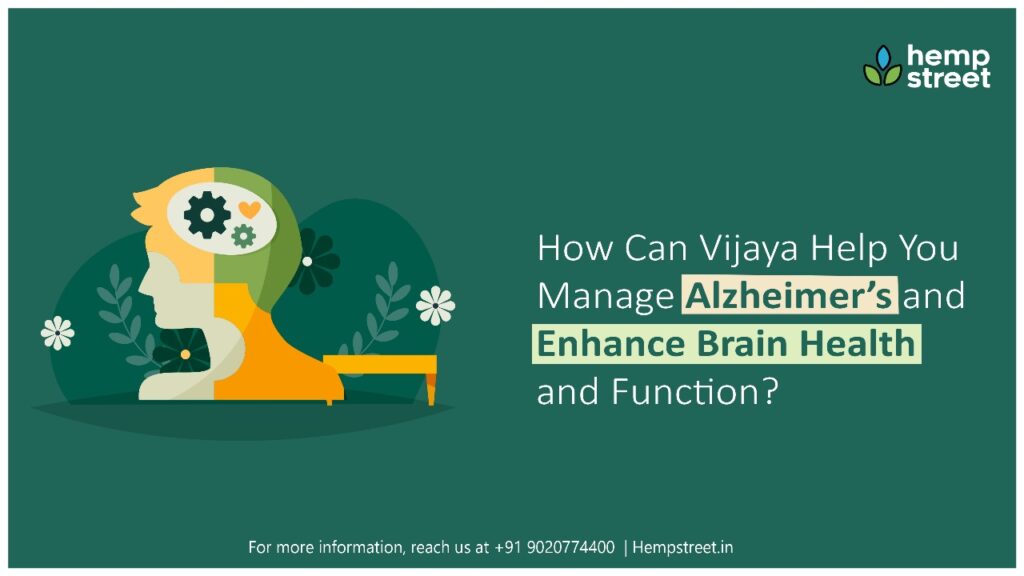Alzheimer’s disease is the most common form of dementia, affecting memory, cognitive abilities, thought, language, communication, and behavior. Accounting for over 60-80% of dementia cases, Alzheimer’s is progressive, starting with mild memory loss, with the symptoms gradually becoming severe enough to interfere with one’s daily activities.
It can even hinder a person’s ability to respond to the environment and carry on a conversation.
As per recent statistics, Alzheimer’s is one of the leading causes of death in developed countries like America, with nearly 6.2 million Americans over 65 living with the disease. This number is predicted to grow to 13.8 million by 2060! Additionally, the reported deaths from Alzheimer’s increased by nearly 145% between 2000 and 2019.
What Are the Symptoms and Warning Signs of Alzheimer’s?
Microscopic changes in the brain associated with Alzheimer’s typically begin in the brain regions responsible for learning. However, the symptoms take much longer to appear, usually first being seen at 60 and worsening with age.
But contrary to the common misconception, Alzheimer’s disease and related forms of dementia are not a normal part of aging. Memory problems are the most common first signs of this disease, and they can disrupt one’s daily life in various ways, such as:
- Difficulty remembering newly gained information
- Repeating the same statements and questions in a conversation
- Trouble handling money
- Getting lost in places they know well
- Decreased judgment
- Problems with completing simple tasks at home and/or work
- Misplacing things
- Forgetting appointments, events, conversations, and even the names of family members and everyday objects
As the disease advances, the symptoms get increasingly severe, leading to
- Disorientation
- Mood and behavior issues
- Depression
- Anger or aggression
- Social withdrawal
- Delusions
- Changes in personality
- Unfounded suspicions about friends, family members, loved ones, and colleagues
- Deeper confusion about events, places, and time
- More serious memory loss
- In worse cases, problems with speaking, walking, and swallowing
What Are the Causes of Alzheimer’s?
The brain contains billions of nerve cells (neurons) that regulate various activities, whether thinking, learning, remembering, etc. The formation of two abnormal structures called plaques and tangles are prominent suspects in damaging and killing these neurons.
Plaques are deposits of a protein fragment known as beta amyloid, which develops in between the spaces of the neurons. At the same time, tangles are twisted fibers of another protein called tau, which build up inside the nerve cells.
Both these structures block the communication between the neurons and disrupt the process needed for these cells to survive and function effectively. As a result, they cause memory failure, personality issues, difficulties in conducting day-to-day activities, and all the other symptoms of Alzheimer’s.
In addition, multiple other possible factors can cause Alzheimer’s disease and affect each person differently.
- Age is the most significant known risk factor for Alzheimer’s, as most people suffering from it are over 60-65 years old.
- Sometimes, changes in the brain can develop years before the first symptoms of this disease appear.
- Family history/genetics may also play a role in the development of this disease.
Furthermore, an unhealthy lifestyle, lack of physical activity, improper dietary habits, alcohol consumption, smoking, etc., can also heighten the risk of Alzheimer’s. This is because the gut and the brain are closely connected and mutually affect each other.
Leveraging Vijaya for Alleviating Alzheimer’s
The science of Ayurveda considers having a healthy brain central to overall function and well-being. Besides emphasizing proper dietary habits and a healthy and active lifestyle, the ancient science recommends various effective herbs and their derived medications for improving brain health and cognitive processes.
The most potent of such concoctions is the Trailokya Vijaya Vati, with Vijaya, or medical cannabis, being its prominent ingredient. An important Ayurvedic herb, Vijaya has been known for thousands of years for its psychoactive properties and its direct impact on brain function.
Its cannabinoids bind with the receptors in the brain regions responsible for learning, memory, attention, decision-making, emotions, coordination, and reaction time. This allows it to restore the function of the nerve cells responsible for regulating cognitive processes and alleviate various mental health conditions, including Alzheimer’s and other forms of dementia.
What The Studies Say
- The results of a study conducted in Korea revealed that the organic compounds in Vijaya, CBD, and THC helped prevent toxicity in the nerve cells in the brain, increased cell survival, and encouraged neurogenesis (growth and development of new nerve cells) in the brain. As a result, these compounds were found to be effective in improving memory and preventing and alleviating Alzheimer’s as they suppressed the disease’s main causal factors.
- Another study found that Vijaya and its derived medications can inhibit the development of Alzheimer’s by preventing the deposition and growth of the beta-amyloid protein in the brain.
- A 2022 review further confirmed the neuroprotective properties of Vijaya by reporting that the herb’s chemical compounds (cannabinoids, flavonoids, terpenes, etc.) protect the neurons through various cellular and molecular pathways in the brain. They protect the nerve cells against hyperactivity, oxidative stress, and the harmful effects of Alzheimer’s beta-amyloid protein.
- A review pointed out that Vijaya can effectively alleviate agitation, irritability, disrupted motor function, behavior issues, sleep disorders, cognitive problems, and other symptoms associated with dementia.
- Another recent review showed that CBD can protect nerve cells from the pathological mechanism of Alzheimer’s and promote neuronal cell growth in the hippocampus of the brain, the structure responsible for learning and memory.
In addition, Vansh Lochan, or Bambusa Arundinacea, is another prominent ingredient of the Trailokya Vijaya Vati, which exhibits neuroprotective properties. It regulates the secretion and function of protein in the brain regions responsible for learning and memory, thus improving their function.
A rich source of antioxidants, Vansh lochan can further reduce the risk of Alzheimer’s and other chronic age-related diseases (cardiovascular diseases, diabetes, etc.).
On Safety Profile
Conventional medications and treatment methods for Alzheimer’s exhibit numerous adverse side effects that worsen the symptoms of this disease. The common ones are-
- Nausea and vomiting
- Loss of appetite/weight loss
- Dizziness
- Headaches
- Fatigue
- Diarrhea
- Muscle pain and/or cramps
- Sleep problems, especially insomnia
In worse cases, Alzheimer’s medications increase the risk of-
- impaired alertness and motor coordination
- Worsening of depression
- Difficulty with activities like driving
- Suicidal thoughts
- Hindered judgment
- Complex sleep behaviors (sleepwalking, sleep-driving, etc.)
- Compromised respiratory function
- Sleep paralysis
On the contrary, natural Ayurvedic formulations like the Trailokya Vijaya Vati are herbal and do not show such side effects. A recent review reported that Vijaya exhibits a good safety profile and is well tolerated by patients. The risk lies only when the herb is consumed without the proper medical consultation and in improper dosage.
Another observational study conducted in 2022 assessed dementia patients with an average age of over 81 years by giving them Vijaya-based medication. They reported no side effects and/or adverse reactions to the treatment. Their symptoms improved so much that they needed fewer traditional medications and less assistance from the caregivers.
To discover more about leveraging Vijaya for alleviating Alzheimer’s and other related conditions, contact Hempstreet and get the right consultation from the best Ayurvedic medical experts!
References
https://pubmed.ncbi.nlm.nih.gov/33756057/
https://www.alz.org/alzheimers-dementia/what-is-alzheimers
https://www.mayoclinic.org/diseases-conditions/alzheimers-disease/symptoms-causes/syc-20350447
https://www.healthline.com/health/medical-marijuana/marijuana-and-dementia#treatment
https://www.cdc.gov/marijuana/health-effects/brain-health.html




